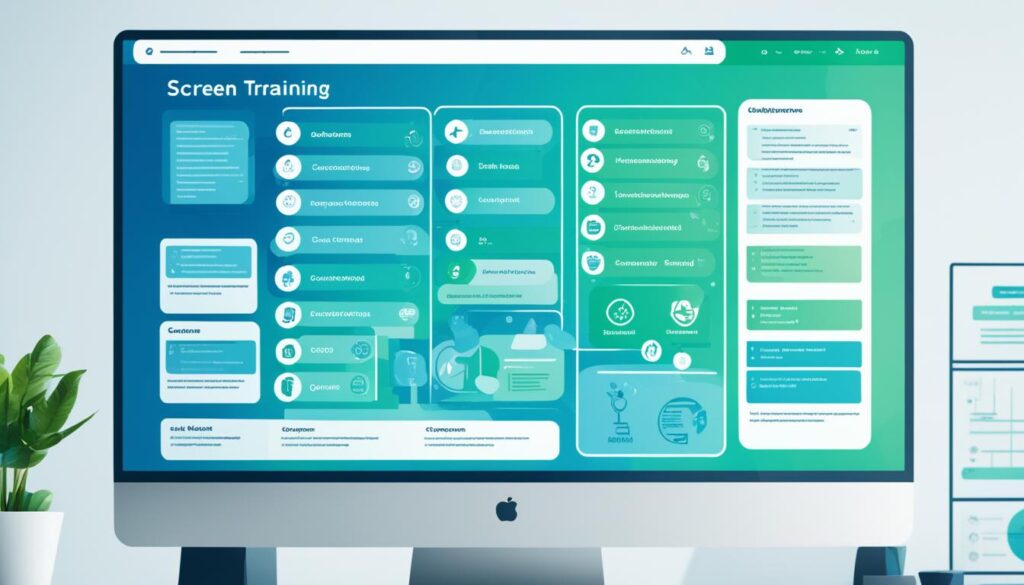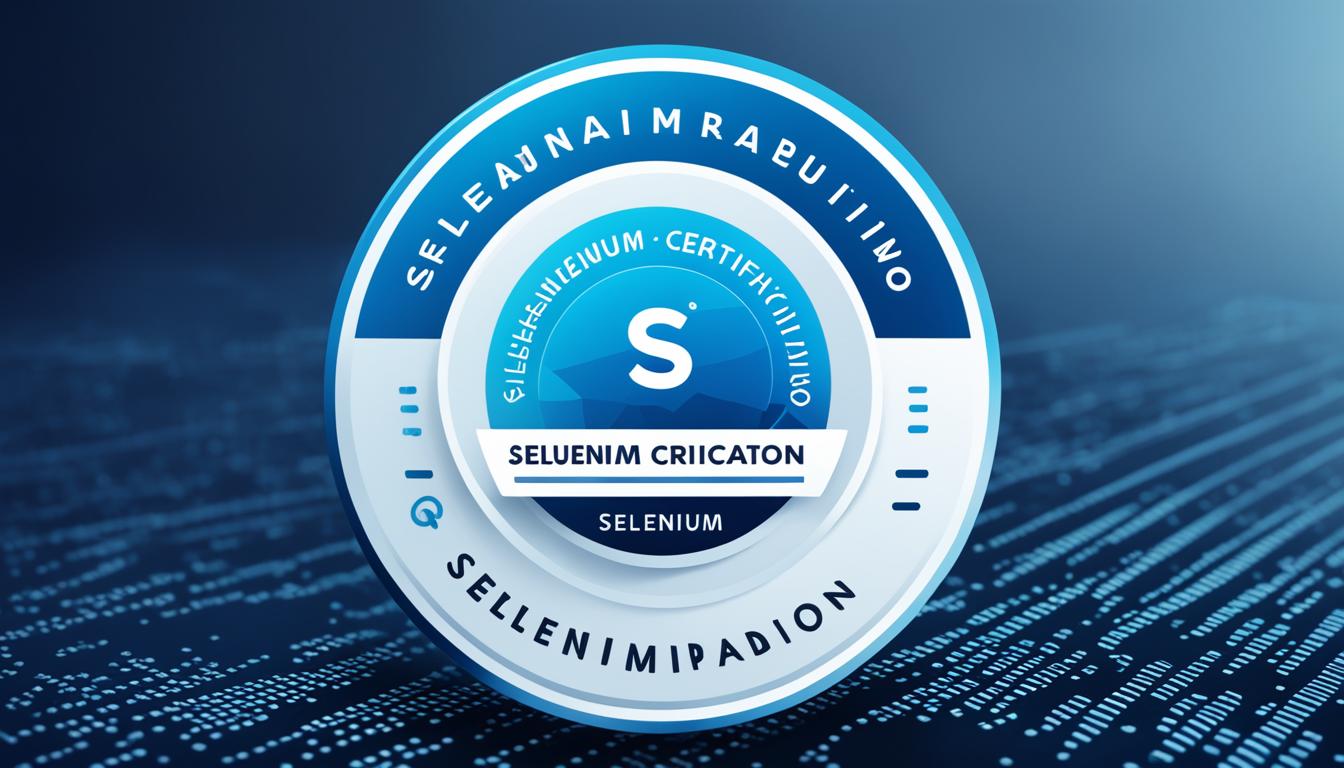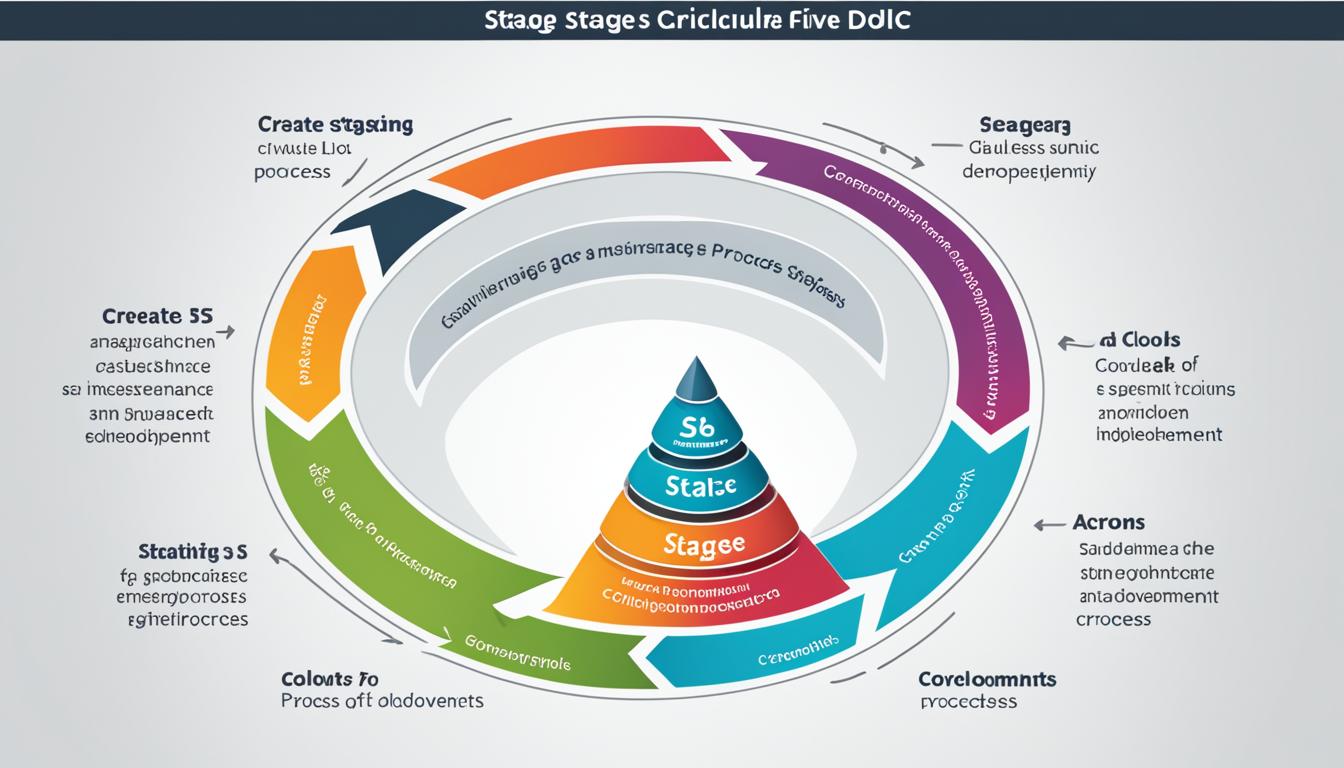Discover the comprehensive guide to mastering web automation with online Selenium training. If you are aiming to become a top Automation Tester, the Selenium certification course provided by Edureka is the perfect choice. This training covers all the essential elements of Selenium, including WebDriver, Grid, and IDE. Moreover, it prepares you to enhance your automation setup with tools like TestNG Framework, Robot Class, Cucumber, and Gherkin.
With flexible batches and expert instructors, our training is designed to help you become a certified Automation Tester. The global Automation Testing Market is projected to reach USD 49.9 billion by 2026, creating immense job opportunities for selenium testing engineers. The average salary for an automation engineer in the United States is $96,689 per year, with additional cash bonuses.
Selenium is a highly desired automation testing tool due to its support for different operating systems and programming languages. By enrolling in our training, you’ll gain the skills and knowledge needed to succeed in the field of Selenium testing.
Key Takeaways:
- Edureka’s Selenium certification training covers all essential components of Selenium.
- Flexible batches and expert instructors to help you become a certified Automation Tester.
- The global Automation Testing Market is projected to reach USD 49.9 billion by 2026.
- Selenium supports different operating systems and programming languages.
- Opportunities for selenium testing engineers with competitive salaries and bonuses.
Why Choose Edureka for Selenium Training?
When it comes to Selenium training, Edureka stands out as a reliable and comprehensive option. Here are the reasons why you should choose Edureka for your Selenium certification online:
- Instructor-led Online Training: Edureka provides instructor-led online Selenium training that ensures interactive learning and real-time guidance from industry experts.
- Flexible Batches and Lifetime Access: With flexible batches, you can choose a schedule that suits your convenience. Additionally, you get lifetime access to the course materials, allowing you to revisit the content at any time.
- 24×7 Support: Edureka offers round-the-clock support, ensuring that you can seek assistance and resolve any queries during your learning journey.
- Hands-on Project-based Learning: Gain practical experience in web automation through hands-on project-based learning, enabling you to apply your knowledge in real-world scenarios.
- Recognized Industry Certification: Upon completing the Selenium training course, you will receive a certification that is recognized in the industry. This certification will significantly enhance your career prospects in the field of Selenium testing.
- Comprehensive Course Coverage: The course covers essential topics such as core Java, web automation, handling browsers, website testing, and automating data operations. Edureka’s Selenium training equips you with the necessary skills to excel in Selenium testing.
- Live Interactive Learning: Edureka’s training offers a live interactive learning environment, where you can actively engage with instructors and fellow learners. This interactive approach enhances the learning experience and ensures better retention of knowledge.
With Edureka’s Selenium training, you can be confident that you are receiving high-quality instruction, practical experience, and industry-recognized certification. Start your Selenium training journey with Edureka today to become a proficient Selenium professional.
Testimonials
“I am extremely satisfied with Edureka’s Selenium training. The course content is comprehensive, and the instructors are exceptionally knowledgeable. The hands-on projects helped me gain practical experience, and the 24×7 support ensured that all my queries were promptly addressed. I highly recommend Edureka for Selenium training.”
– John Smith, Automation Tester
Choosing Edureka for Selenium training was the best decision I made for my career. The flexibility of the course, combined with the comprehensive content and industry-recognized certification, has significantly boosted my career prospects. I am now a certified Selenium professional, thanks to Edureka!”
– Emily Johnson, QA Engineer
Selenium Training Course Overview
| Course | Topics Covered |
|---|---|
| Core Java | Introduction to Java programming |
| Web Automation | Handling browsers |
| Website testing | |
| Automate data operations | |
| Selenium WebDriver |
Figure 1: Edureka’s Selenium Training Provides Industry-Recognized Certification
Skills Covered in Selenium Training
In our Selenium training at Edureka, we cover a comprehensive range of skills to equip you with the necessary expertise in web automation and Selenium tools. Our course includes in-depth training in the following areas:
- Core Java: Gain a solid foundation in Java programming, a prerequisite for Selenium automation.
- Web Automation: Learn how to automate web applications and perform tasks such as form filling, button clicking, and data extraction.
- Handling Browsers: Understand how to interact and control different web browsers using Selenium.
- Website Testing: Master the techniques for testing website functionalities, including navigation, user input, and data validation.
- Automating Data Operations: Learn how to automate data-driven processes, such as reading and writing data from files and databases.
Interacting with Web Elements using Selenium WebDriver
With Selenium WebDriver as our primary tool, our training enables you to interact with web elements effectively. You will learn:
- How to locate web elements using various locators, such as ID, class name, name, tag name, link text, and partial link text.
- Using XPath and CSS selectors to identify elements based on their properties.
- Techniques for interacting with web elements, such as clicking buttons, entering text, selecting dropdown options, and handling checkboxes and radio buttons.
Using TestNG and Waits for Test Execution
“Selenium training at Edureka provides detailed coverage of TestNG, a powerful testing framework that enhances the capabilities of Selenium.”
TestNG offers features like parallel test execution, test case grouping, and test case dependency management. We teach you how to:
- Configure TestNG for running Selenium test scripts.
- Create test suites, manage test dependencies, and define test execution order.
- Use TestNG annotations for setup, teardown, and test case execution control.
- Implement waits in Selenium for synchronizing test execution with dynamic web elements.
Optimizing Test Execution with Page Object Modeling and Page Factory
To ensure the efficient execution of your test scripts, we introduce you to
using Page Object Modeling (POM) and Page Factory techniques. You’ll learn how to:
- Design and implement page objects to represent web pages and their elements.
- Enhance test script maintainability, reusability, and clarity by adopting POM.
- Optimize web element initialization and interaction using Page Factory annotations.
Additional Topics
Our training also covers additional topics that are crucial for comprehensive Selenium expertise:
- Handling web tables and extracting data from them.
- Synchronizing test execution using implicit and explicit waits.
- Working with different web browsers, including Chrome, Firefox, and Safari.
Mastering these skills will empower you to build robust automation frameworks and effectively test web applications using Selenium WebDriver.
Selenium Certification Course Overview
Edureka’s Selenium certification course provides a comprehensive overview of Selenium and its various components, such as WebDriver, Grid, and IDE. With a focus on practical application, this course equips you with the skills and knowledge needed to excel in Selenium testing.
Throughout the course, you will cover essential topics including:
- Java programming for Selenium
- Web automation and handling browsers
- Website testing and automating data operations
- Writing test scripts using data-driven, keyword-driven, and hybrid frameworks
- Introduction to the Page Object Model (POM) design pattern for structuring and organizing test scripts
By the end of the certification course, you will have gained hands-on experience with Selenium tools and be prepared to tackle any testing environment with confidence.

Selenium Testing Certification: The Key to Professional Growth
“Earning a Selenium testing certification not only validates your skills in the field but also opens doors to exciting career opportunities. With the ever-increasing demand for Selenium experts, this certification can significantly enhance your job prospects and earning potential. Take the next step towards professional growth and enroll in Edureka’s Selenium certification course today!”
Prerequisites for Selenium Certification Training
Prior knowledge of core Java is helpful but not mandatory for the Selenium certification training. At Edureka, we offer self-paced videos as part of the course that can help you refresh your Java skills. Our training is suitable for individuals with a background in software testing or those looking to transition into automation testing.
Whether you are a fresher or an experienced professional, our course is designed to cater to your learning needs and help you achieve your career goals in Selenium testing.
Benefits of Selenium Training
Selenium training offers numerous benefits, given the growing adoption of automation testing and the increasing demand for Selenium testing engineers. The training equips you with the skills to meet the rising demand for selenium automated testing solutions.
With Selenium, you can enhance productivity by minimizing human intervention and speeding up the software product development cycle. Moreover, Selenium’s cross-platform compatibility and support for multiple programming languages make it the preferred choice for automation testing.
By enrolling in Selenium training, you can gain a competitive edge in the job market and increase your earning potential. The rising demand for selenium testing engineers creates numerous job opportunities, ensuring a bright career outlook in automation testing.
Whether you are a software testing professional looking to enhance your skills or a fresh graduate aiming to enter the automation testing field, Selenium training can provide you with the necessary expertise to succeed. Invest in your career growth and take advantage of the benefits of Selenium training.
Selenium Course Structure and Topics Covered
The Selenium certification course from Edureka is a comprehensive program designed to provide you with a strong foundation in Selenium and prepare you for real-world testing scenarios. The course covers a wide range of topics, ensuring you receive a well-rounded education in Selenium testing.
The course begins with an introduction to Java programming and the basics of Selenium. This introductory section helps you familiarize yourself with the essential concepts and principles you’ll need to understand throughout the course.
“The course starts with an introduction to Java programming and the basics of Selenium.”
Once you are comfortable with the fundamentals, the course delves into more advanced topics. You will learn about web automation, including how to handle browsers, perform website testing, and automate data operations. This knowledge equips you with the skills to effectively automate repetitive tasks and enhance the efficiency of your testing efforts.
As you progress, the course covers TestNG, an essential testing framework used in Selenium. You will learn how to use TestNG to organize and execute your tests, allowing for smoother test runs and easier test management.
“The course covers advanced topics like TestNG, waits in Selenium, and working with different frameworks.
In addition, the course focuses on advanced Selenium concepts like waits, which enable you to synchronize your tests with the application under test. You will also explore different frameworks and learn how to leverage their advantages to create robust and maintainable test scripts.
Furthermore, the course introduces you to Page Object Modeling and Page Factory, key techniques used in Selenium testing. These methodologies help structure and organize your test scripts, making them more maintainable and scalable.
“Additionally, you will learn about Page Object Modeling and Page Factory, which enable efficient test script development.”
By the end of the course, you will have covered a comprehensive range of topics and gained hands-on experience with various Selenium tools and techniques. This knowledge will empower you to confidently tackle real-world testing challenges and excel in your professional career as a Selenium testing engineer.

Topics Covered in the Selenium Certification Course
| Module | Topics Covered |
|---|---|
| 1 | Introduction to Java programming and Selenium basics |
| 2 | Web automation and handling browsers |
| 3 | Website testing and automating data operations |
| 4 | Advanced concepts: TestNG and synchronization |
| 5 | Working with different frameworks |
| 6 | Page Object Modeling and Page Factory |
Job Opportunities in Selenium Testing
Selenium testing offers a wide range of job opportunities in the field of automation testing. With the increasing demand for automation engineers and the growing market size of the Automation Testing industry, there is a need for skilled Selenium testing professionals.
Job roles in Selenium testing include:
- Automation Test Analyst
- QA Engineer
- QA Lead
- Technical Project Manager
- Automation Architect
These roles come with competitive salaries and the potential for career growth. By completing Selenium certification training, you can enhance your job prospects and open doors to exciting opportunities in the field of automation testing.

Why Choose Edureka for Selenium Training?
When it comes to Selenium training, Edureka stands out with its impeccable track record and comprehensive learning experience. Here are a few reasons why you should choose us:
- Live Interactive Learning: At Edureka, we believe in providing a dynamic and engaging learning environment. Our live interactive classes ensure that you can actively participate and get the most out of your training.
- Lifetime Access: Once you enroll in our Selenium training, you gain lifetime access to all the course materials. This means you can revisit and review the content whenever you need to, ensuring a solid understanding of the concepts.
- 24×7 Support: We understand that learning doesn’t always happen during business hours. That’s why our team of experts is available 24×7 to provide support and guidance, ensuring that your learning journey is smooth and hassle-free.
- Industry-Recognized Certification: Upon successful completion of the Selenium training, you will receive an industry-recognized certification from Edureka. This certification validates your skills and knowledge, making you stand out in the job market.
With Edureka’s Selenium training, you can expect nothing short of excellence. Join our community of learners and take the first step towards becoming a skilled Selenium testing professional.
Conclusion
Mastering web automation with online training Selenium is a valuable investment in your tech career. With the increasing demand for automation testing and the rapid growth of the Automation Testing market, Selenium skills are highly sought after.
Edureka’s Selenium certification training provides comprehensive coverage of Selenium tools and techniques, equipping you with the skills needed to succeed in the field. By enrolling in the course, you can elevate your career prospects, enhance your earning potential, and become a certified Automation Tester.
So, take the next step and embark on your journey to becoming a Selenium expert with Edureka.
FAQ
What does Edureka’s Selenium certification training cover?
Edureka’s Selenium certification training covers all the essential components of Selenium, including WebDriver, Grid, IDE, and more. The course also teaches you how to use plugins like TestNG Framework, Robot Class, Cucumber, and Gherkin for controlling your automation environment.
Why should I choose Edureka for Selenium training?
Edureka’s Selenium training is instructor-led and offers interactive learning with flexible batches and lifetime access to course materials. You’ll receive 24×7 support and hands-on project-based learning to gain practical experience in web automation. Edureka’s training is recognized in the industry, and upon completion, you will receive a certification that will enhance your career prospects.
What skills are covered in Selenium training?
The Selenium training from Edureka covers a range of skills, including core Java, web automation, handling browsers, website testing, and automating data operations. You will learn how to use Selenium WebDriver to interact with web elements, locate web elements using various locators, and use XPath and CSS selectors. The course also covers TestNG, a popular testing framework, and teaches you how to use waits in Selenium for synchronizing test execution.
What does the Selenium certification course cover?
The Selenium certification course from Edureka provides a comprehensive overview of Selenium and its various components, such as WebDriver, Grid, and IDE. The course covers topics like Java programming, web automation, handling browsers, website testing, and automating data operations. You will learn how to write test scripts using different frameworks like data-driven, keyword-driven, and hybrid frameworks. The course also introduces you to the Page Object Model (POM) design pattern, which helps in structuring and organizing your test scripts.
Are there any prerequisites for Selenium certification training?
Prior knowledge of core Java is helpful but not mandatory for the Selenium certification training. Edureka provides self-paced videos to refresh your Java skills as part of the course. The training is suitable for individuals with a background in software testing or those looking to transition into automation testing.
What are the benefits of Selenium training?
Selenium training offers numerous benefits, given the growing adoption of automation testing and the increasing demand for Selenium testing engineers. The training equips you with the skills to meet the rising demand for selenium automated testing solutions. With Selenium, you can enhance productivity by minimizing human intervention and speeding up the software product development cycle. Moreover, Selenium’s cross-platform compatibility and support for multiple programming languages make it the preferred choice for automation testing.
What topics are covered in the Selenium course?
The Selenium certification course from Edureka covers a wide range of topics, including core Java, web automation, handling browsers, website testing, automating data operations, and more. You will learn how to use Selenium WebDriver, different testing frameworks, and advanced techniques like Page Object Modeling and Page Factory.
What job opportunities are available in Selenium testing?
Selenium testing offers a wide range of job opportunities in the field of automation testing. Job roles in Selenium testing include Automation Test Analyst, QA Engineer, QA Lead, Technical Project Manager, and Automation Architect. These roles come with competitive salaries and the potential for career growth.
What sets Edureka’s Selenium training apart?
Edureka’s Selenium training stands out for its live interactive learning environment. You will have access to expert instructors who provide in-depth explanations and guidance throughout the course. The course also offers lifetime access to the course materials, allowing you to review the content anytime. With 24×7 support, you can seek assistance and resolve any queries during your learning journey. Upon successful completion, you will receive an industry-recognized certification from Edureka, validating your skills and knowledge in Selenium testing.









